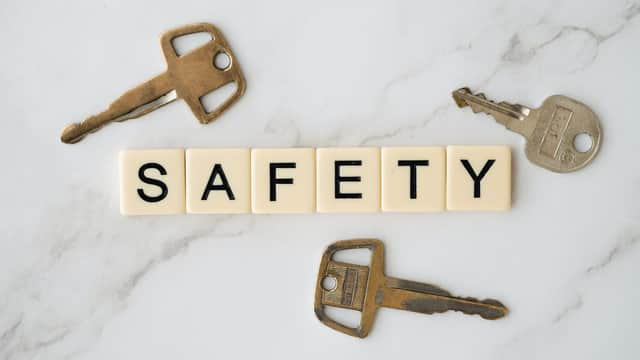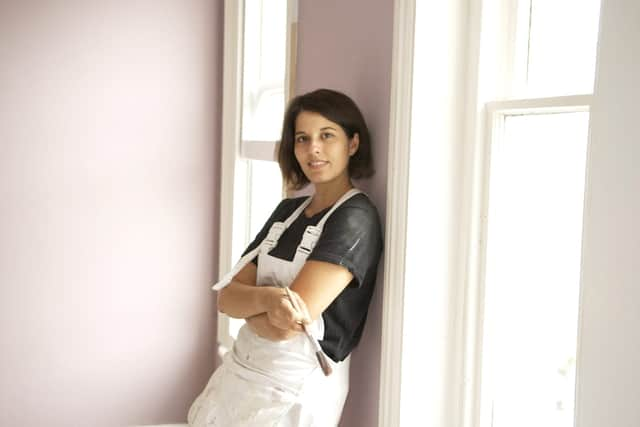Covid-induced corner cutting risks invalidating insurance of millions of movers and improvers


Gas safety campaigners are warning that a boom in home moving and improving, combined with a pandemic-squeeze on people’s finances and a lack of understanding about insurance policies, risks jeopardising health and wealth in 2021.
With many entering 2021 suffering from the negative economic impacts of the Covid-19, pandemic, cutting costs this Winter is a priority.
Advertisement
Hide AdAdvertisement
Hide AdNew research from the Gas Safe Register - the UK’s official registration body for gas engineers and gas businesses - shows that just under half of householders (49%) say the pandemic has made them thriftier, prompting 45% to try ‘doing it themselves’ rather than relying on qualified, legally registered professionals for improvements and renovations.
However, these efforts to save could actually prove more costly – almost 90% of the 2,000 householders surveyed did not realise home renovations can impact their home insurance cover and large numbers can’t identify some of the most common things that could invalidate policies, leading to future claims being rejected.
The most common things that could invalidate policies
- Using faulty home appliances (61% were unaware)
- DIY damage caused by improvements such as such as re-locating a gas boiler, building a conservatory, or similar (50%)
- Not using a certified tradesperson for carrying out gas and electrical work or repairs in your home (48%)
Accidentally invalidating your home insurance policy can be distressing, both emotionally and financially - but over half (51%) of Brits admit to never having read their home insurance policy in full.
However, for safety reasons, gas, electrical and plumbing works must be carried out by a registered professional. Tackling these types of job unqualified can invalidate home insurance and warranties, leaving people significantly out of pocket if something goes wrong, as well as at risk of injury or worse.
Advertisement
Hide AdAdvertisement
Hide AdIn fact, according to data from the Association of British Insurers (ABI), 82.2 per cent of claims are accepted, while the average cash amount people claim for on their home insurance is £2,627*.
The pandemic has sparked a sharp rise in people in wanting to relocate and change their housing situations, with a near two-fold increase in volume of agreed UK sales by last autumn alone*. This booming property market is set to see last year’s trend for renovations and DIY continue, as over a quarter (26%) of Brits plan to carry out major improvements in their homes over this coming year.
To help these millions of movers and improvers stay safe and save money, Gas Safe Register has teamed up with TV personality and DIY expert, Jo Behari as part of its Safety Starts at Home public awareness campaign.


Behari says: “When moving home or deciding to make big home improvements, it’s easy to get caught up in the aesthetics or keeping costs down and let home safety take a back seat. Before deciding to embark on any work, I urge all homeowners to ensure that the tradespeople they hire are properly qualified to safely and legally carry out the work.
Advertisement
Hide AdAdvertisement
Hide Ad“Worryingly, two thirds of gas work carried out illegally – by people not registered with the Gas Safe Register – is found to be unsafe. At worst, the consequences can be devastating, but it can also invalidate your home insurance. People need to check their home insurance policies so they’re clear on how work might impact their ability to make a claim. Always make sure you use a Gas Safe Registered engineer for gas work, checking they’re certified and on the register.
Prevention is better than cure
Like with our health, prevention is better than cure when it comes to gas safety and keeping you covered for the unexpected. Having your gas appliances checked annually by a registered engineer means you won’t risk invalidating your insurance by continuing to use appliances that have developed faults.”
Jonathan Samuel, chief executive at Gas Safe Register says:“We’ve spent so much more time in our homes recently it’s natural people have looked to move and improve. We’re stressing the importance of not cutting corners when gas is involved, even when finances are squeezed.
“While DIY-ing directly with gas appliances is the most obvious way to cause a gas emergency, there are other projects that can indirectly put you at risk. For example, accidentally drilling a hole through a gas pipe while attempting to put up shelving.
Advertisement
Hide AdAdvertisement
Hide Ad“Whether it’s gas emergency, planned maintenance or improvements, it’s vital you seek the help of a registered expert. Gas engineers are listed as key workers and as such, are still conducting home visits, with the necessary precautions in place, during this period of social distancing and staying at home.”
Kate Devine, insurance expert at MoneySuperMarket said: “Attempting home improvements yourself which involve significant building work, or even gas and electrical work, rather than using a legally registered professional can seem like a great way to save money. However, doing so, can easily leave you exposed to having a claim refused and significantly out of pocket, should you need to call upon your home insurance policy and you have unwittingly invalidated it.
“My advice is to always be clear on what your policy covers you for and what it doesn’t. Read the Ts&Cs and make sure you enter your own details correctly.”
Download here, the Gas Safe Register’s free winter guide, for useful information on how to stay gas safe during the colder months of the year.
Stay Better Gas Safe Than Sorry
Advertisement
Hide AdAdvertisement
Hide AdGas Safe Register’s five top tips to help home movers and improvers stay Better Gas Safe Than Sorry, are:
- Don’t try to fit, fix or move gas appliances such as a boiler, oven or cooker yourself – it’s best to use a Gas Safe registered engineer who has the right skills. Visit https://www.gassaferegister.co.uk/help-and-advice/gas-safety-in-the-home/home-improvement/ for more information
- Before carrying out any drilling, hammering or putting screws into a wall or floor check what’s behind it with a pipe, cable and stud detector. You do not want to be accidentally causing punctures in a pipe leading to a potential gas leak.
- Never block or cover air vents and flues. If your flue becomes blocked, these gases will leak back into your home, leaving you exposed to carbon monoxide.
- Know the six main symptoms of carbon monoxide (CO) poisoning – headaches, nausea, dizziness, breathlessness, collapse and loss of consciousness. And the signs of an unsafe gas appliance include a lazy yellow flame, black marks or stains, increased condensation and an intermittent pilot light.
- If you suspect unsafe gas – as a result of a DIY mishap or for any other reason – it’s vital to get expert help despite lockdown. Contact the National Gas Emergency Helpline on 0800 111 999 (or 0800 002 001 if you’re in Northern Ireland). Visit https://www.gassaferegister.co.uk/what-to-do-in-an-emergency/ for more details.